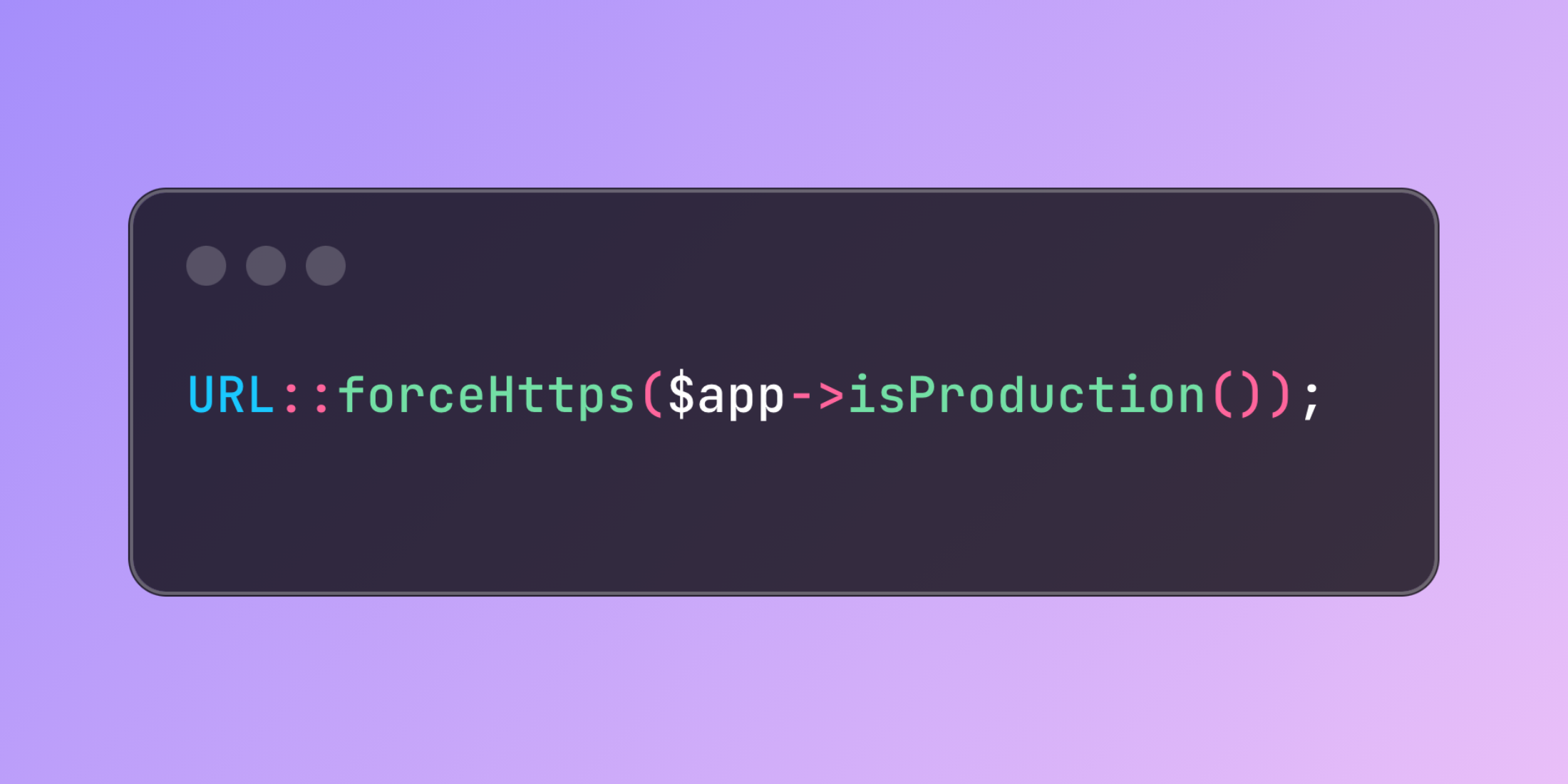Laravel's forceHttps method provides a straightforward way to enforce HTTPS for all generated URLs in your application. This feature ensures that your links, redirects, and assets always use secure connections in production environments.
This approach is particularly valuable for applications handling sensitive data, as it helps prevent mixed content warnings and ensures a consistent security posture across your entire site.
// Simple production-only enforcementURL::forceHttps($app->isProduction()); // More granular environment controlURL::forceHttps( $app->environment(['production', 'staging']));Here's an example of implementing comprehensive security enhancements:
<?php namespace App\Providers; use Illuminate\Support\Facades\URL;use Illuminate\Support\ServiceProvider; class AppServiceProvider extends ServiceProvider{ public function boot() { $this->configureSecureUrls(); } protected function configureSecureUrls() { // Determine if HTTPS should be enforced $enforceHttps = $this->app->environment(['production', 'staging']) && !$this->app->runningUnitTests(); // Force HTTPS for all generated URLs URL::forceHttps($enforceHttps); // Ensure proper server variable is set if ($enforceHttps) { $this->app['request']->server->set('HTTPS', 'on'); } // Set up global middleware for security headers if ($enforceHttps) { $this->app['router']->pushMiddlewareToGroup('web', function ($request, $next){ $response = $next($request); return $response->withHeaders([ 'Strict-Transport-Security' => 'max-age=31536000; includeSubDomains', 'Content-Security-Policy' => "upgrade-insecure-requests", 'X-Content-Type-Options' => 'nosniff' ]); }); } }}The forceHttps method simplifies URL security management while integrating seamlessly with environment-specific configurations.

















